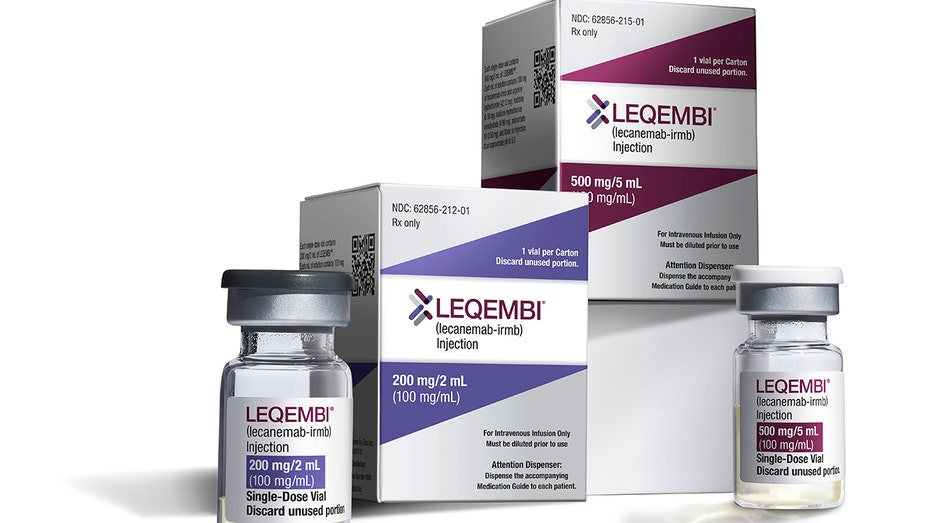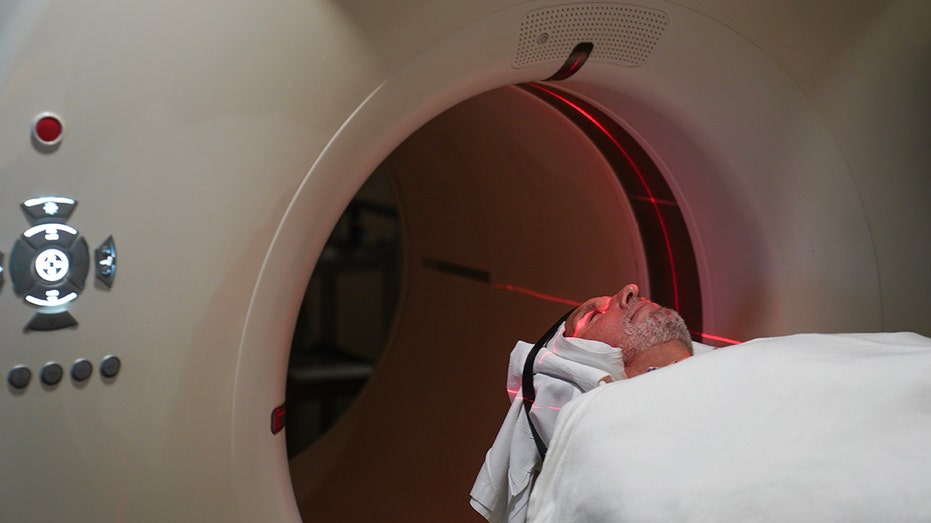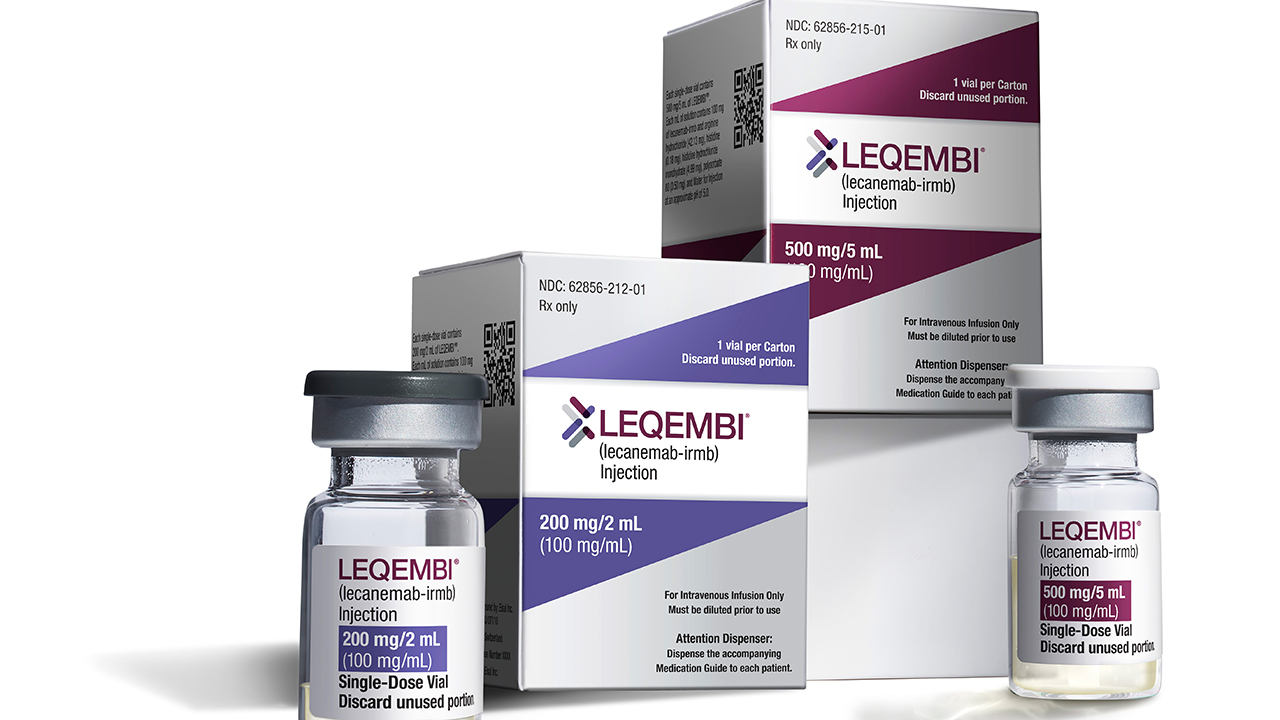Alzheimer’s drug Leqembi: What to know
An estimated 6.7M Americans 65 and older are living with Alzheimer's in 2023
New drug could provide help for Alzheimer’s disease patients
Fox News chief Washington correspondent Mike Emanuel reports on the FDA postulating the approval of a new Alzheimer’s disease drug on ‘The Evening Edit.’
U.S. federal health officials granted full approval to an Alzheimer’s drug this week, marking a major milestone in the treatment of the progressive disease.
The approval by the Food and Drug Administration means the drug, which goes by the brand name Leqembi and is administered every two weeks by infusion, will now be widely accessible and covered by Medicare.
To receive coverage, patients will need to be enrolled in Medicare and be diagnosed with mild cognitive impairment or mild Alzheimer’s disease dementia. Patients need to show evidence they have beta-amyloid plaque on the brain, and they will need "a physician who participates in a qualifying registry with an appropriate clinical team and follow-up care," the Centers for Medicare & Medicaid Services said.
Japanese drugmaker Eisai first received conditional approval from the FDA in January based on early results suggesting Leqembi worked by clearing a sticky brain plaque linked to the disease. Eisai priced the treatment at $26,500 annually per patient.
FDA TO DECIDE ON FULL APPROVAL OF ALZHEIMER'S TREATMENT LEQEMBI IN EARLY JULY

The Alzheimer’s drug Leqembi, which was granted full approval from the FDA (Eisai Inc.)
According to the phase three clinical trial, the drug slowed the rate of cognitive decline in patients by 27% when compared to a placebo after 18 months.
According to the Alzheimer's Association, an estimated 6.7 million Americans who are at least 65 years old are living with Alzheimer's in 2023. However, that figure is projected to rise to nearly 13 million by 2050. The disease also "kills more than breast cancer and prostate cancer combined," the association said.
What you should know about Leqembi:
Dr. Sharon Cohen, a behavioral neurologist and clinical trial investigator for the Clarity AD study, told FOX Business this is the first time the FDA has approved a drug that has been shown to "slow down the clinical aspects of Alzheimer's disease, meaning people will lose memory at a slower rate and lose their functional abilities at a slower rate."
Cohen said there are drugs that have been able to clear amyloid plaque that forms in the brain, which is the sticky protein that is very damaging in Alzheimer's disease. But this drug goes a step further.
Sam Waksal on promising Alzheimer drug: ‘It’s only a beginning’
Graviton Biopharmaceuticals Holdings CEO Sam Waksal discusses the promising Alzheimer's drug expected to receive full approval from the FDA this summer on ‘Varney & Co.’
"It doesn't just clear plaque on a scan, it slows down the disease so that people can stay at mild stages longer. That's why it's a big deal," she said.
"The disease is not just the end stage dementia where people can't do anything. There are people with the disease who have subtle symptoms, who are still functioning well.
FDA APPROVAL OF ALZHEIMER'S DRUG ADUHELM 'RIFE WITH IRREGULARITIES,' HOUSE REPORT SAYS
"If you can slow down the disease so that they stay at a functional state longer, that's a big win."
Who should take the drug?
Good candidates for the drug are patients who are in a mild symptomatic stage of Alzheimer's, Cohen said.
This refers to patients who have mild cognitive impairment but may still be functioning well or patients who have mild dementia but are still living in their community and who are still able to participate in family life.
"That's the stage of disease that Leqembi has been tested in and shown to be effective," Cohen said.

Jay Reinstein, who suffers from Alzheimer's, prepares to receive a PET scan at MedStar Georgetown University Hospital in Washington, D.C., June 20, 2023. (Michael Robinson Chávez/The Washington Post via Getty Images / Getty Images)
She suggests any individuals who have early symptoms of Alzheimer's disease speak to their doctors about whether the treatment is right for them.
Are there risks?
Cohen cautioned that there will be "some situations where this treatment might pose some risks."
Before anyone takes the drug, doctors would need to know that the individual can undergo MRI scans of the brain to make sure it is a safe treatment for that individual as well as routine monitoring "to look out for some of the known potential side effects of the drug."
FDA REJECTS LILLY’S ALZHEIMER’S DRUG CANDIDATE, SEEKS MORE DATA
One side effect is infusion-related reactions, which are generally mild to moderate, Cohen said. The drug is administered every two weeks via intravenous infusion.
For the first intravenous infusion, a patient might have shaking, muscle aches or a headache within the first 24 hours. This usually happens only with the first infusion, and these side effects are treated with anti-inflammatories such as Tylenol, she said.

A U.S. Food and Drug Administration sign (Sarah Silbiger/Getty Images / Getty Images)
"It generally resolves readily and doesn't recur," Cohen said.
The other group of side effects has to do with amyloid-related imaging abnormality (ARIA) and is a potential side effect of antibodies that clear amyloid from the brain.
"ARIA is detected on brain imaging, specifically on MRI scans. It can take the form of swelling in the brain or small spots of bleeding," Cohen said.
With the drug, "ARIA generally occurs without any symptoms and resolves spontaneously," she added. "When symptoms do occur, they are generally mild to moderate and can include transient headache, visual disturbance or unsteady gait. Rarely, there can be severe symptoms and, therefore, careful monitoring for ARIA is important."
Get your memory checked out
Cohen is encouraging anyone who is worried about memory and has been avoiding getting it checked out to do so.
GET FOX BUSINESS ON THE GO BY CLICKING HERE
"There's reason for hope now," she said.
The Associated Press contributed to this report.






















